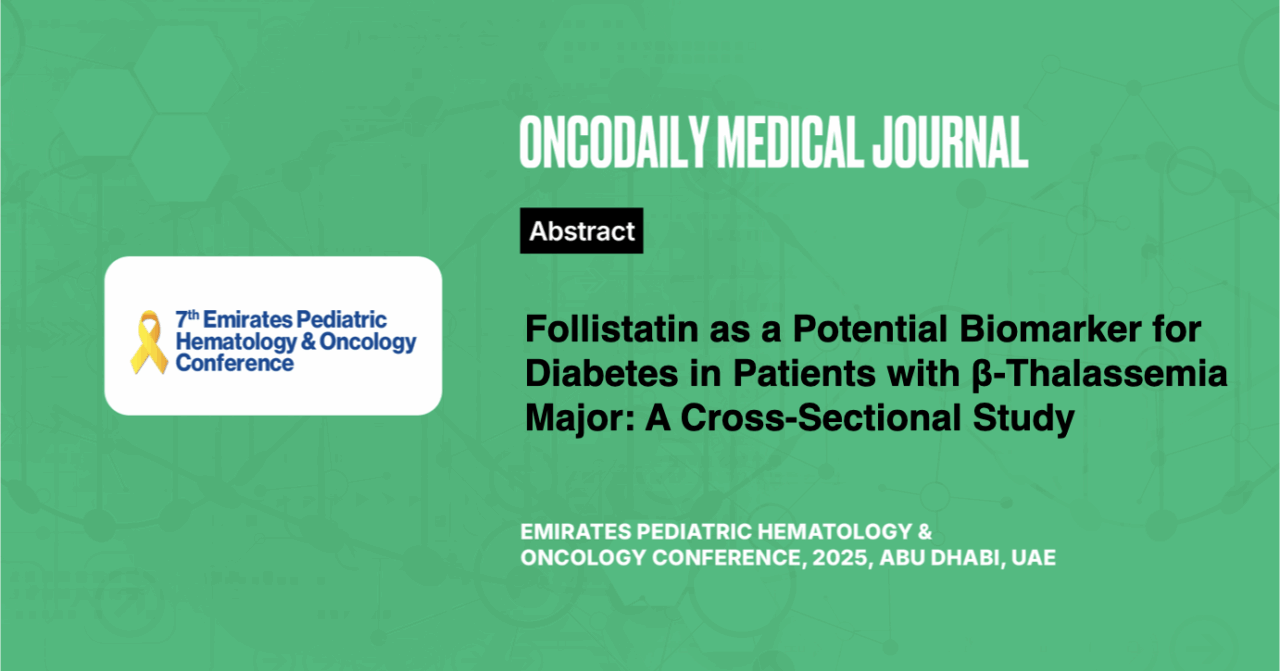Follistatin as a Potential Biomarker for Diabetes in Patients with β-Thalassemia Major: A Cross-Sectional Study
Abstract
Introduction: β-Thalassemia Major (β-TM) is a congenital hemoglobin disorder that necessitates regular blood transfusions. This condition is often associated with iron overload, which can disrupt β-cell function, ultimately leading to type 2 diabetes (T2DM). Follistatin (FST) is a protein predominantly secreted by the liver, though it is found in nearly all tissues. Previous studies have shown that elevated circulating FST levels are linked to an increased risk of T2DM by promoting insulin resistance in adipose tissue. This study aimed to investigate the potential of FST as a biomarker to differentiate between β-TM patients with T2DM and non-diabetic β-TM patients.
Methodology: We conducted a cross-sectional study that included 41 β-TM patients without diabetes (24 males, 17 females; mean age: 31.6 ± 6.9 years; ferritin levels: 1425 ng/ml ± 600; random glucose: 107 ± 14 mg/dl; fructosamine: 247 ± 27 µmol/l), 33 β-TM patients with T2DM (14 males, 19 females; mean age: 35.1 ± 6.1 years; ferritin levels: 2882 ng/ml ± 2000; random glucose: 200 ± 100 mg/dl; fructosamine: 355 ± 114 µmol/l), and 10 healthy control subjects without β-TM or T2DM (5 males, 5 females; ferritin levels: 250 ng/ml; random glucose: 104 mg/dl). Blood samples were collected, and FST levels were measured using ELISA assay.
Results: The results revealed that β-TM patients with T2DM exhibited significantly higher FST levels (3200 ± 1670.9 pg/ml) compared to β-TM patients without T2DM (1700 ± 564 pg/ml, P = 0.0001). No significant difference in FST levels was observed between healthy subjects (1670 ± 200 pg/ml) and β-TM patients without T2DM (P > 0.05). Correlation analysis indicated a significant association between FST and random glucose (r = 0.6; P = 0.0001), HbA1c% (r = 0.5; P = 0.01), and fructosamine (r = 0.34; P = 0.01).
Conclusion: Our findings indicate that FST levels are significantly elevated in β-TM patients with T2DM compared to those without T2DM. Therefore, FST may serve as a promising biomarker for managing and monitoring diabetes status β-TM patients.





